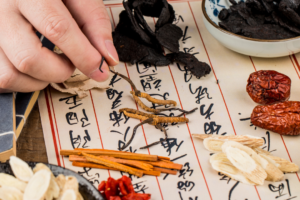How Acupuncture Schools Are Integrating Traditional and Modern Practices
As the world of healthcare evolves, acupuncture schools are adapting to blend the best of traditional techniques with modern scientific advancements. This integration enhances the depth of acupuncture education, preparing students to work in diverse healthcare environments. At Colorado Chinese Medicine University® (CCMU), our programs exemplify this balanced approach, bringing together ancient wisdom and cutting-edge practices to enrich students’ learning and future careers.
Bridging Traditional Techniques with Biomedical Science
At the foundation of any acupuncture education is the study of traditional techniques and theories, such as meridian pathways, Qi, Yin-Yang balance, and the Five Elements. These ancient concepts have guided practitioners for centuries and remain central to the curriculum. However, modern acupuncture schools like CCMU are adding a new dimension by incorporating biomedical sciences into their programs.
Courses in anatomy, physiology, and pathology allow students to understand the human body from both an Eastern and Western perspective. This dual knowledge enables future practitioners to communicate effectively with other healthcare providers and broaden their clinical approach. Learning the biological mechanics behind acupuncture points and body systems enhances both the accuracy and effectiveness of traditional acupuncture techniques.
Evidence-Based Practice and Clinical Research
Today, acupuncture schools place a greater emphasis on evidence-based practice, encouraging students to engage with clinical research. Through participation in studies and exposure to research methodologies, students learn to evaluate the effectiveness of acupuncture for various conditions, including pain management, stress relief, and chronic health issues. At CCMU, our research programs aim to provide students with a strong foundation in clinical research, connecting them to a growing body of evidence that supports acupuncture’s place in modern healthcare.
Collaborations between acupuncture schools and research institutions further strengthen this integration. By partnering with universities and hospitals, acupuncture schools are not only validating traditional methods but also introducing students to cutting-edge studies and innovations in holistic health. These partnerships are particularly important for legitimizing acupuncture as a complementary treatment in mainstream medicine.
Incorporating Technology into Training
Modern diagnostic and training tools are becoming increasingly common in acupuncture education. Schools like CCMU are leveraging technology to provide students with tools such as imaging and biofeedback for precise treatment planning. Virtual anatomy labs and simulation software also enable students to practice techniques in a controlled environment, enhancing their confidence and skill level before entering clinical practice.
The rise of telehealth and online learning has opened additional opportunities for acupuncture students. Through virtual case studies and remote learning options, students can expand their knowledge and reach beyond the classroom, adapting their skills to the changing healthcare landscape.
Preparing for a Modern Healthcare Environment
As integrative health clinics and interdisciplinary care become more popular, acupuncture schools are training students to work alongside Western healthcare providers. Many programs, including those at CCMU, offer clinical internships in integrative settings, allowing students to observe and participate in cross-disciplinary treatment plans. By experiencing firsthand how acupuncture complements Western medicine, students are better prepared for careers in today’s diverse healthcare field.
Conclusion: The Future of Acupuncture Education
Integrating traditional and modern practices in acupuncture education enriches both the student experience and the field of healthcare as a whole. At Colorado Chinese Medicine University®, we are dedicated to this blended approach, offering comprehensive programs such as the Master of Acupuncture (MAc), Doctor of Acupuncture (DAc), Master of Acupuncture and Chinese Herbal Medicine (MAcCHM), and the advanced Doctor of Acupuncture and Oriental Medicine (DAOM). By choosing a program that values both traditional wisdom and modern innovation, students at CCMU gain the tools to thrive in a healthcare landscape that values holistic, patient-centred care.


